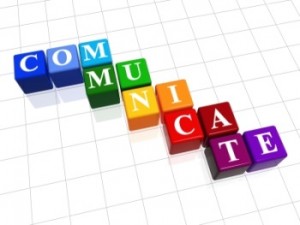Communication is the process of transferring signals/messages between a sender and a receiver through various methods (written words, nonverbal cues, spoken words). It is also the mechanism we use to establish and modify relationships.
Here are some steps and tips to help you develop good communication skills.
Have courage to say what you think - Be confident in knowing that you can make worthwhile contributions to conversation. Take time each day to be aware of your opinions and feelings so you can adequately convey them to others. Individuals who are hesitant to speak because they do not feel their input would be worthwhile need not fear. What is important or worthwhile to one person may not be to another and may be more so to someone else.
Practice - Developing advanced communication skills begins with simple interactions. Communication skills can be practiced every day in settings that range from the social to the professional. New skills take time to refine, but each time you use your communication skills, you open yourself to opportunities and future partnerships.
Make eye contact. - Whether you are speaking or listening, looking into the eyes of the person with whom you are conversing can make the interaction more successful. Eye contact conveys interest and encourages your partner to be interested in you in return.
Use gestures. - These include gestures with your hands and face. Make your whole body talk. Use smaller gestures for individuals and small groups. The gestures should get larger as the group that one is addressing increases in size.
Don’t send mixed messages. - Make your words, gestures, facial expressions and tone match. Disciplining someone while smiling sends a mixed message and is therefore ineffective. If you have to deliver a negative message, make your words, facial expressions, and tone match the message.
Be aware of what your body is saying. - Body language can say so much more than a mouthful of words. An open stance with arms relaxed at your sides tells anyone around you that you are approachable and open to hearing what they have to say.
Develop effective listening skills: - Not only should one be able to speak effectively, one must listen to the other person’s words and engage in communication on what the other person is speaking about. Avoid the impulse to listen only for the end of their sentence so that you can blurt out the ideas or memories your mind while the other person is speaking.
Track your career path and training needs with www.sains2u.com







